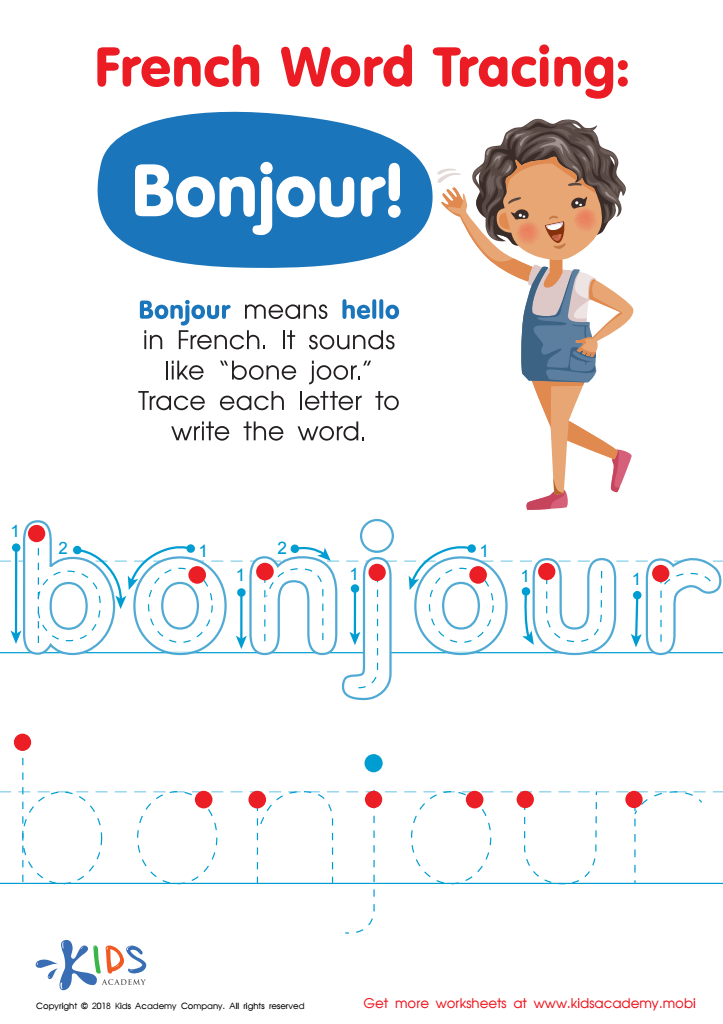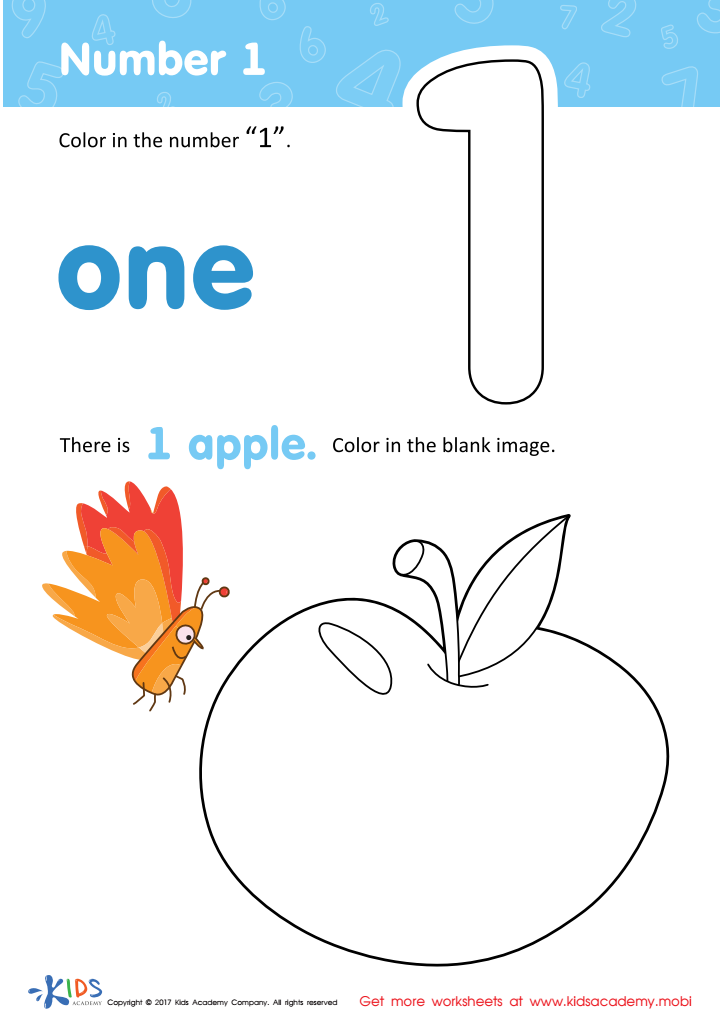Writing practice Extra Challenge Worksheets for Ages 7-8
3 filtered results
-
From - To
Unlock your child's writing potential with our "Writing Practice Extra Challenge Worksheets for Ages 7-8"! Designed to enhance their creative thinking and writing skills, these engaging worksheets provide a variety of prompts that inspire imagination and self-expression. Each worksheet is tailored to help young learners develop clarity, structure, and confidence in their writing. Perfect for classroom use or at-home learning, these extra challenges encourage kids to explore vocabulary, practice sentence formation, and articulate their ideas effectively. Foster a love for writing in your child with these exciting, interactive worksheets, and set the foundation for lifelong communication skills!


Letter A Tracing Page


French Word Tracing: Bonjour Worksheet


Number 1 Printable
Writing practice is essential for children ages 7-8 as it lays the foundation for effective communication skills that are crucial both academically and in everyday life. During this developmental stage, children are refining their ability to express thoughts clearly and creatively. Incorporating extra challenges encourages critical thinking, enhances vocabulary, and promotes better grammar usage, all of which are important for their overall literacy.
Parents and teachers should care about these writing challenges because they foster a love for writing and motivate students to engage deeply with the subject. Writing creatively helps enhance imagination and problem-solving skills, while structured practice can build discipline and work ethic. Additionally, strong writing skills are connected to academic success across subjects, enabling children to articulate ideas in math, science, and social studies.
Furthermore, writing offers a unique emotional outlet for children, helping them process experiences and feelings. Providing extra writing practice can be tailored to a child's interests, making the activity enjoyable rather than a chore. Ultimately, by prioritizing writing challenges, parents and teachers can empower children to become confident communicators, setting them up for success in school and beyond.
 Assign to My Students
Assign to My Students



















